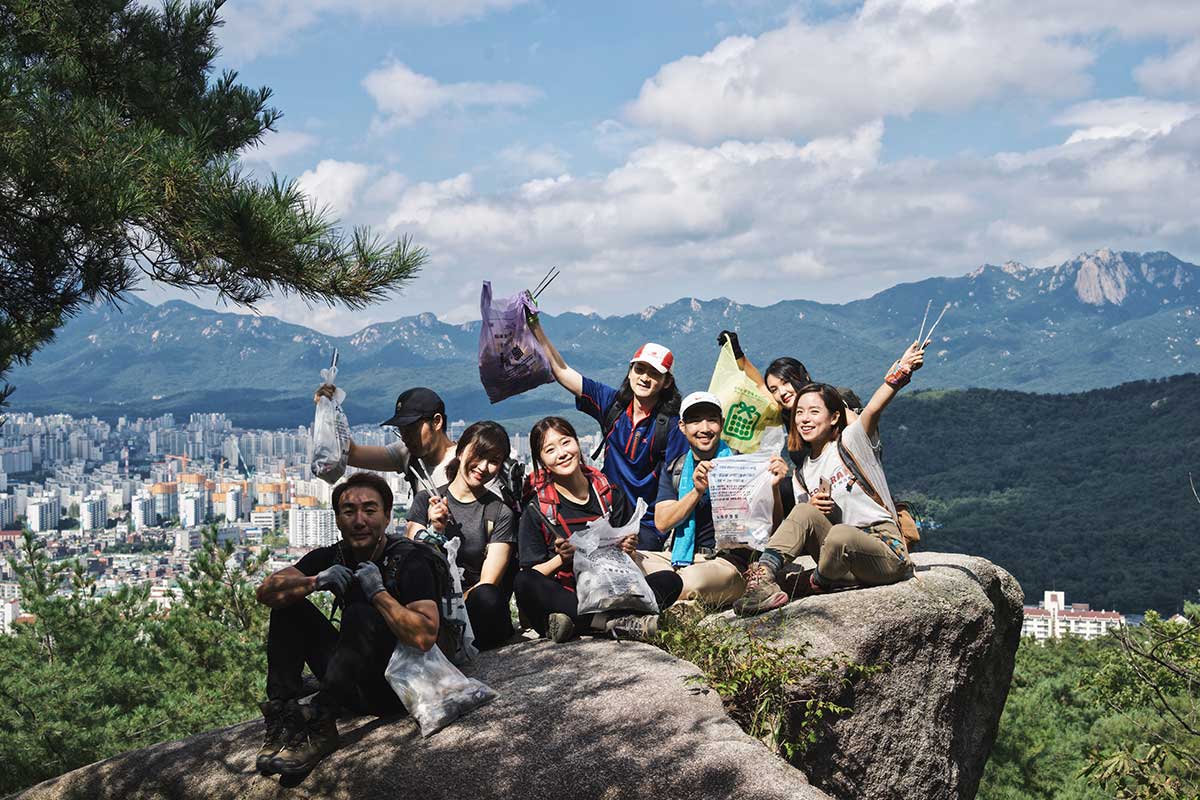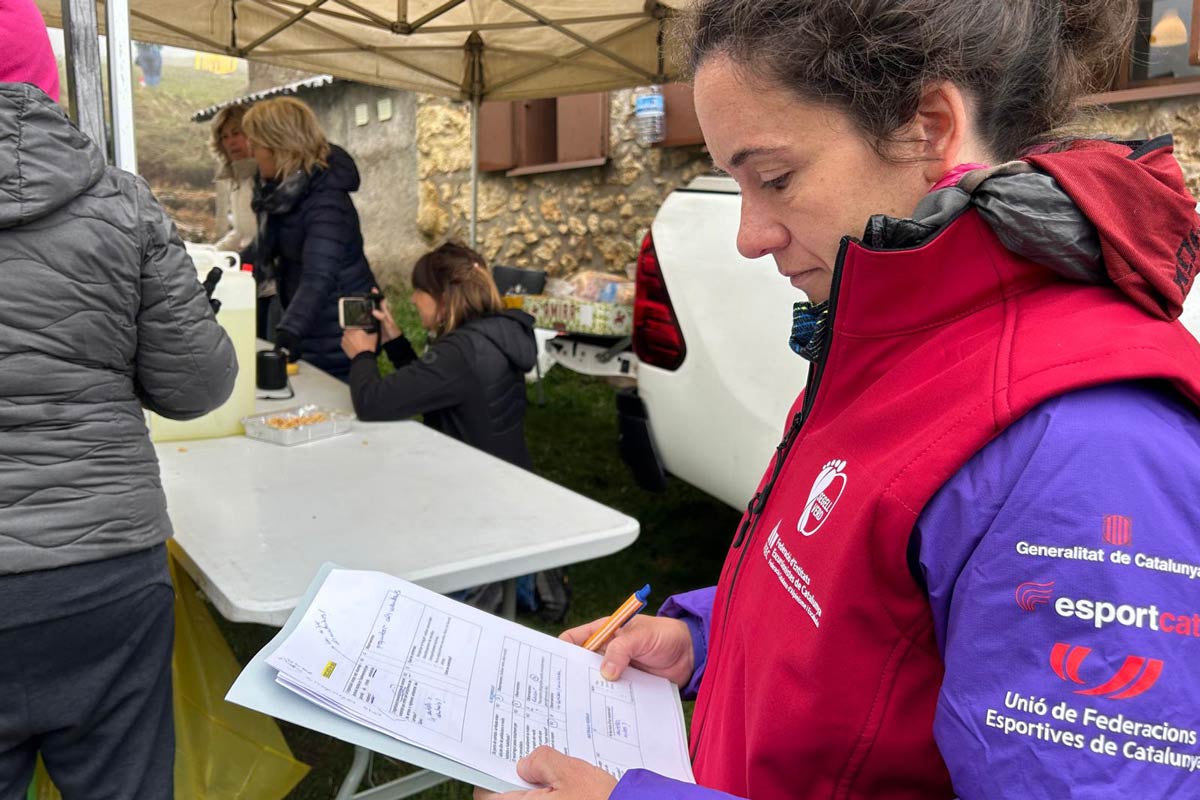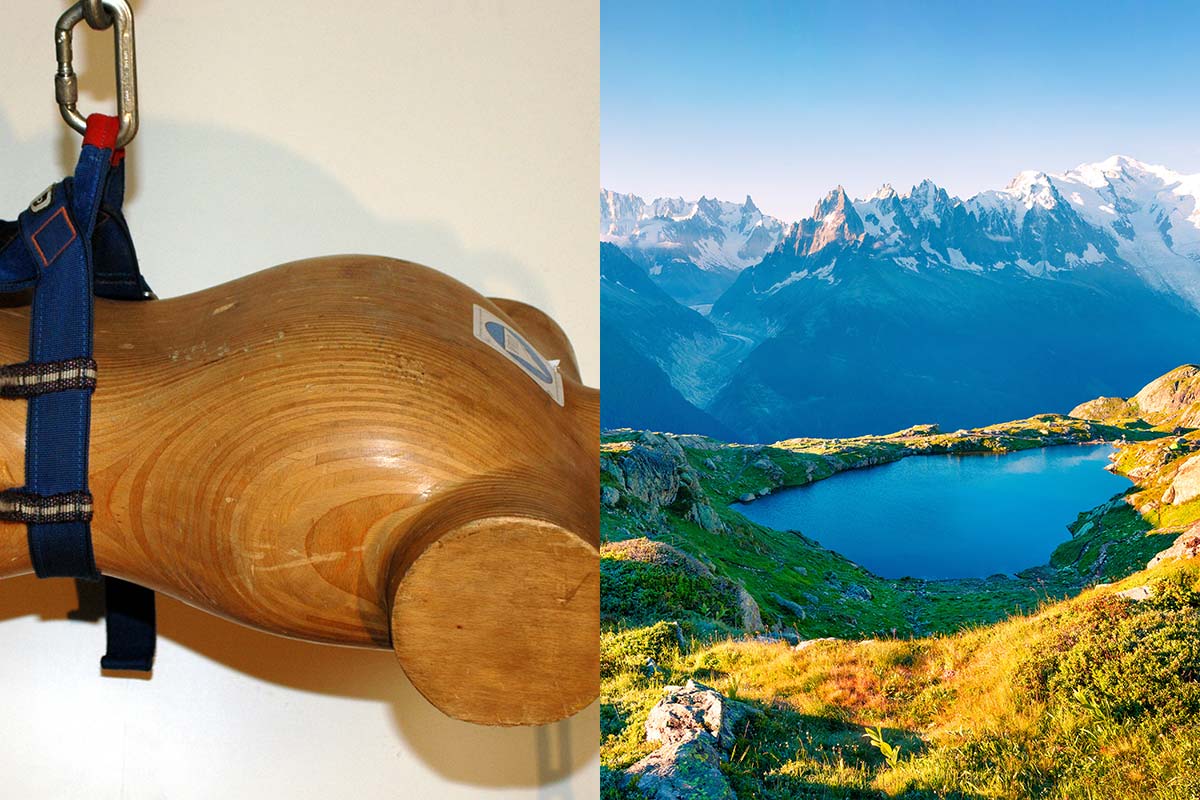OVERVIEW
Clean Hikers are a group that creates a healthy outdoor culture by practicing various green activities by linking mountaineering, environment, play, and art, starting with picking up trash in the mountains. After Covid-19, mountaineering, climbing and backpacking has increased in Korea. However, compared to many people enjoying the mountains, the sensitivity of mountain environment protection is low.
—
Vision, goals and objectives
Before explaining the project goals, it is necessary to understand the current situation in Korea. The Republic of Korea has a lot of mountains so that 70-80% of the land is mountainous. And since many people enjoy the mountains, the outdoor population such as mountaineering, climbing, backpacking, and trail running has increased after Covid-19.
However, the problem with mountain culture in Korea is that compared to how many people enjoy the mountains, the sensitivity of mountain environment protection is low. There is too much dumped garbage on the trails, and the awareness of minimising the human impact on nature (LNT) is low. It is judged that the reason for this is because the opportunity to experience nature and the educational environment are neglected from childhood, and thus the awareness of nature and the environment is lowered.
Therefore, the goal of this project is
1. Create a game-like fun and playful, never-before-seen mountain conservation event and arena.
2. Provide a place for experience and education for the newly influx of outdoor population.
3. Cultivating a culture of enjoying and protecting nature, ultimately aiming to change perceptions.
We create a clean and sustainable mountain environment in which no one needs to pick up garbage in the end by cultivating a fair and clean culture that leaves no trace for anyone who visits the local mountains and nature, picks up trash happily, and contributes to the local economy.
In times of climate crisis, the most necessary thing is going beyond Leave No Trace, practicing Leave Good Trace. In other words, we should take active actions to erase human traces and change people’s perceptions for the mountains and ourselves. It is about creating a sustainable culture.
We plan to carry out three projects with the goal of providing a place of experience and education in a way that is fun and enjoyable like a game, like a game, and nurtures a culture to enjoy and protect nature, and ultimately change perceptions.
Environmental activities must not be rigid. It has to be fun and enjoyable to be sustainable. As the environment becomes play, and garbage becomes art, you will find that living protection is enjoyable. Participants will also become voluntary activists, influencers and educators to spread the “Leave Good Trace” culture.
Therefore, it is possible to nurture a healthy outdoor culture through the small but active [Leave Good trace] method and further improve the awareness of mountains, nature, and the environment. Ultimately, it aims to create a sustainable mountain environment where no one needs to pick up trash.
“Let’s become a person who loves mountains rather than people who love mountains. Leave Good Trace.” This small action is the beginning of change.
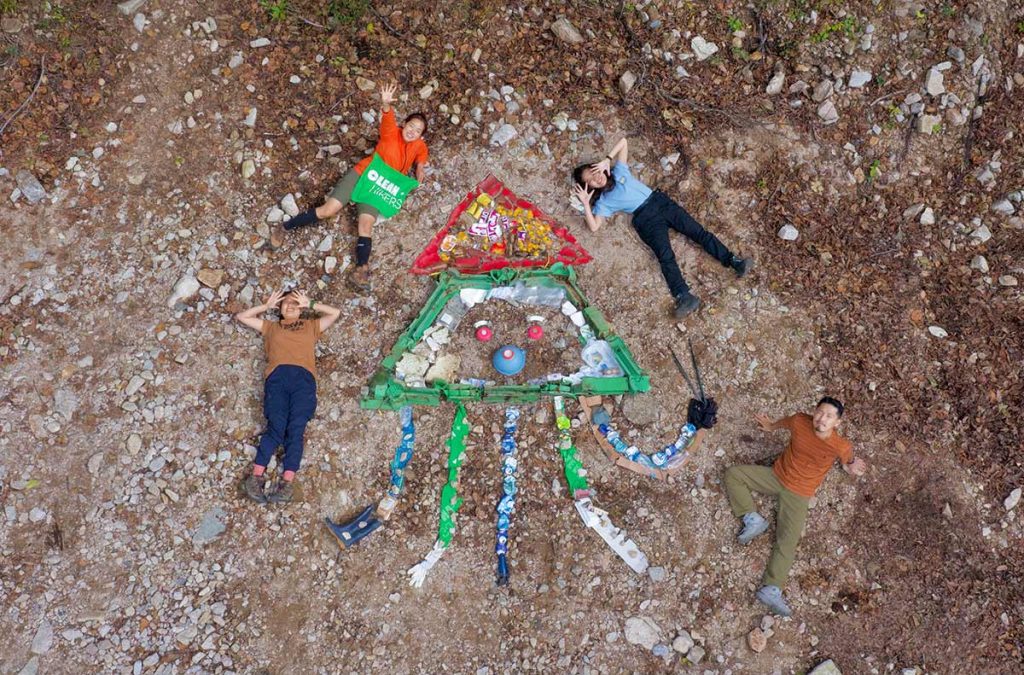
Expected implementation and outcomes
The project is implemented in three major phases.
These are the programs and events that are implemented with three keywords: the National Clean Hiking Competition (game), the hiking and backpacking school (education), and the junk art exhibition (art) based on the collected waste.
Some more detailed items are described below:
1. Clean Hiking Contest: This is a fun Clean Hiking-Mountain Garbage Picking Contest that can be easily participated by people from all over the country, including families, couples, friends, and individuals. It provides an opportunity to confirm that it is not just an object to climb a mountain, but something that we protect and that there are many people who are with us. Enjoy the mountain like a game through various missions, and provide fun and sustainability through appropriate rewards for mountain protection practices. -Main tasks include competition planning, participant recruitment, ticket opening, security guard Mitch staff placement, booth installation for competition operation and awards, organising participant products and rewards, and requesting regional cooperation.
2. Clean Backpacking School: Provides basic mountaineering and clean backpacking training as well as camping techniques and equipment usage. Breathe in the mountains more deeply than mountaineering, and develop a sense of mountain protection. Ultimately, it fosters domestic ‘clean backpackers’ and establishes a sustainable backpacking culture.
-Main contents: Safety and LNT&LGT education / Clean backpacking program that cleans 10m around my campsite / Environment mock test and zero-waste networking / After descent, visit local specialty restaurants
3. Junk Art Exhibition: Picking up trash can create a positive impact, but there is a message that can be conveyed as a work of art. Junk art photos and installation art exhibitions are held by collecting junk art, old garbage, and unusual garbage that has been created for about five years. During the exhibition period, clean hikers directly docent and participate in clean talk concerts and clean hiking events.
Tasks: Rent an exhibition hall / Organise a planning team and artists / Create installation art works / Art installation / Exhibition promotion / Offline session operation
Climbing, mountaineering or outdoor sport focus
The easiest way to start mountain conservation activities is to ‘pick up trash’. It is the most intuitive and actionable method right now, but at the same time, it is not an activity that everyone practices. As it is an activity to change the mountain protection culture and perception, mountain climbing and backpacking, which the public enjoys easily among various outdoor sports, were set as the main contents. For this reason, two of the three major action plans are planned to take place in the mountains.
We want to discuss the ‘how’ rather than the ‘what’. In recent years, the 100 Famous Mountain Challenge has become popular in Korea. Men and women of all ages, there is a tendency to challenge 100 famous mountains designated by the Korea Forest Service and aim only to take certified shots at the top of the mountain. We focused on the fact that experiencing various styles of hiking, deeply feeling nature and forming close relationships is also one way to truly love nature. Therefore, we focused on providing content that allows you to experience and understand nature deeply and further protect nature, rather than hiking towards the summit.
-Clean Hiking: Erase human traces while climbing.
-Clean Backpacking: Domestic backpacking culture is standardised by making a fire in a campsite, cooking, and drinking all night long. Instead of cleaning 10m around the campsite and reducing waste, the programme focused on a deeper immersion in nature.
-Art Hiking: Instead of going quickly towards the summit, take pictures of rocks, vegetation, wild animals, and endangered species in the mountains.
-Junk Art: Create your own junk art using the trash you picked up that day, share it on social media, and deliver a green message.
-Clean Climbing: Although it is still in the early stages of implementation, there are many cigarette butts left in the crevices of the rocks. Climbing and collecting butts.
Existing outdoor activities include ways to collect waste and reduce emissions, as well as bring out the totality of activities through exhibitions, and deliver a message about mountain protection.
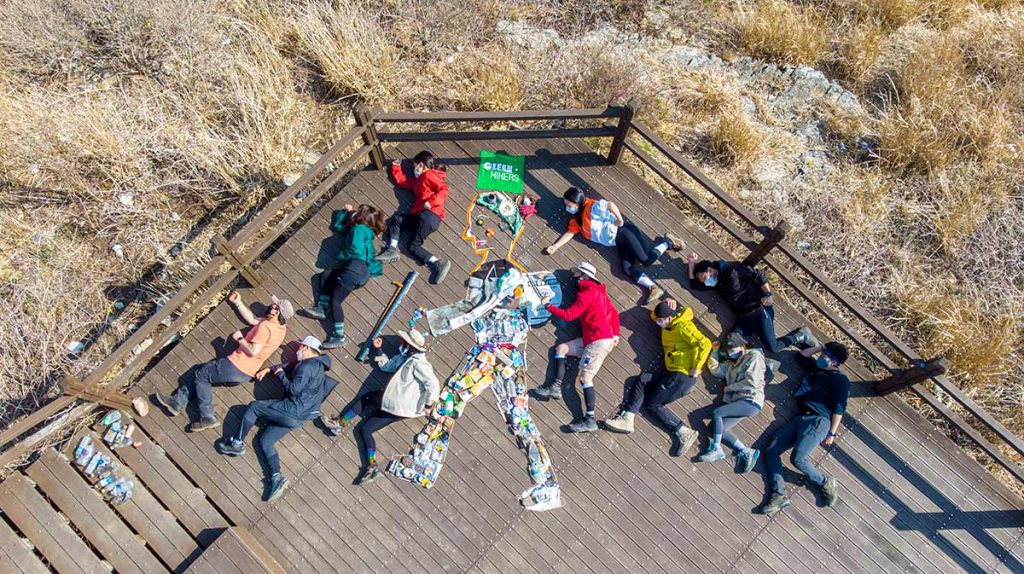 Best practice in mountaineering and mountain-based sports for mountain protection
Best practice in mountaineering and mountain-based sports for mountain protection
It is no exaggeration to say that Korea in 2020-21 is the era of plogging versus fashion. After Covid-19, interest in garbage-picking activities has increased, and under the influence of Clean Hikers’ Clean Hiking campaign that started in 2018, personal blogging activities and Clean Mountain clubs and events have also increased. However, although small group-level activities and one-time events have increased, more systematic and continuous activities are absent.
Hosting a clean hiking event like a marathon/trail running/mountain biking event not only achieves the physical and quantitative goal of collecting garbage by a large number of people, but also creates a forum for exchanges between hikers with relatively more individual activities and strengthens the power of solidarity. can make you experience.
It not only provides play-type mountain protection activities to new influx of new climbers, but also provides continuous educational content to foster in-depth clean hikers. We will share specific methods and know-how to protect the environment in our daily life in times of climate crisis, including mountain protection activities.
The advantage of clean hiking is that you can do it together, but you can do it anywhere, anytime, with anyone. In addition, without the need for new physical resource investment or publicity, the experienced person becomes an educator and trader again, attracting new colleagues and providing the experience. All of these are spontaneous processes. This has been proven by operating and growing the Clean Hikers Group for five years.
The project does not stop with the experience of hikers, but forms a community by connecting the local community and infrastructure. Through mutual exchange, participants experience the unique nature and contents of the region and gain good insights from the local community. In addition, if the junk art exhibition is operated as a permanent exhibition and implemented as a booklet and webpage for each activity guideline of the future project and provided to other organisations, the [Leave Good Trace] activity, an active method of protecting living, can be operated as content.
This project is more like a curriculum that can be repeated, applied, and expanded several times in various regions rather than a one-time project.
To discover more about the UIAA Mountain Protection Award please click here.

